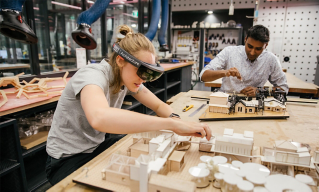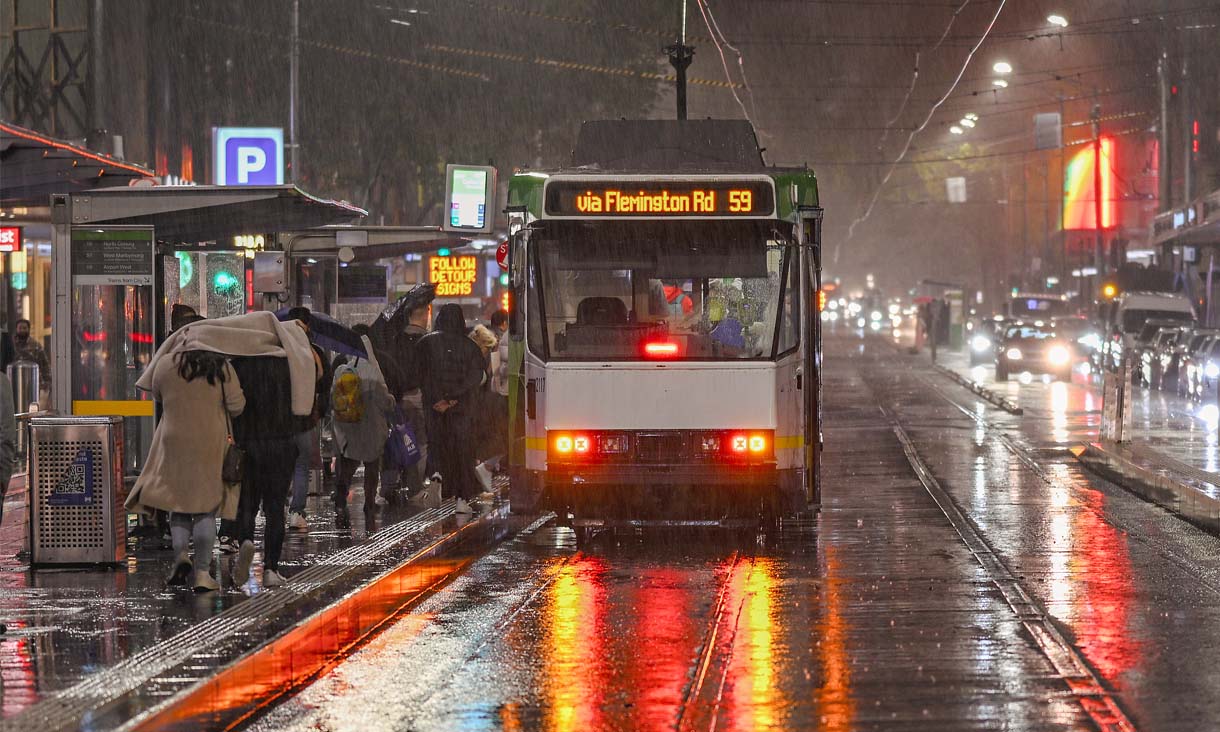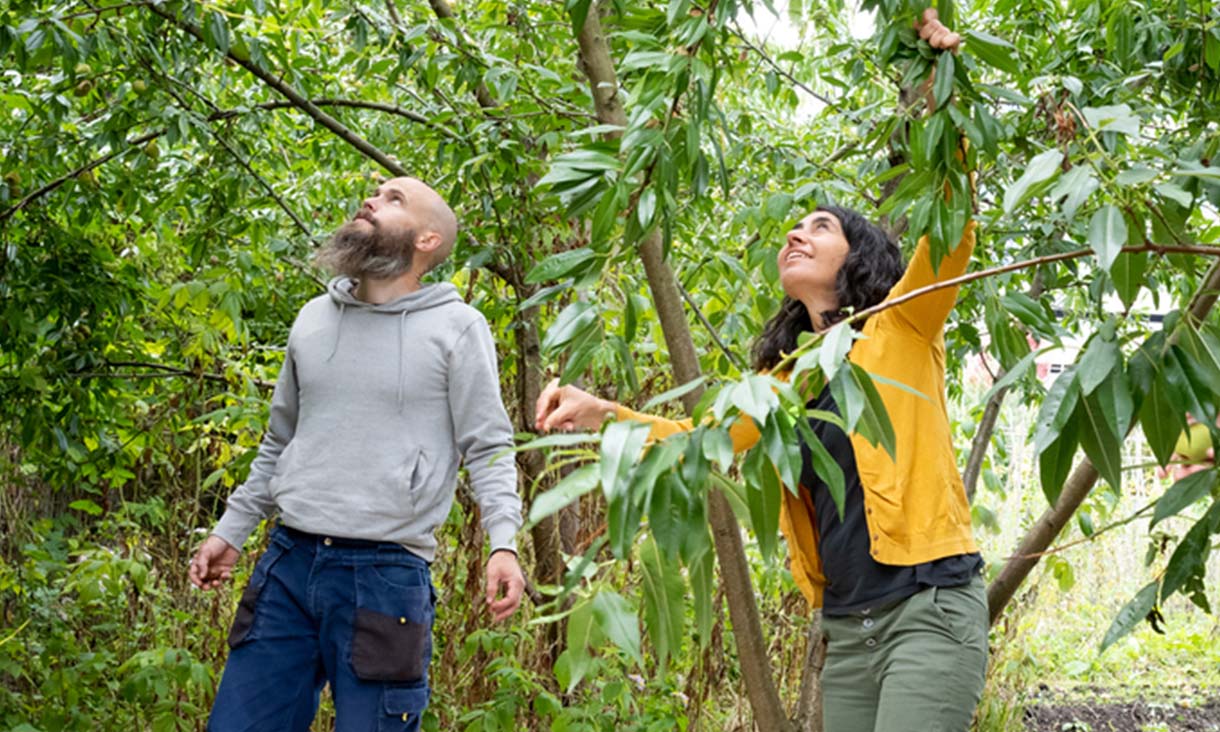It's all part of the urban futures researcher's fieldwork in Barcelona for SHARECITY, a project led by Professor Anna Davies at Trinity College Dublin on the different ways food is shared across cities.
Edwards, from RMIT's Centre for Urban Research and currently based at RMIT Europe, is one of five researchers in the field – other cities in focus include Melbourne, Dublin, London, Athens, Berlin, New York, San Francisco, Zurich and Singapore.
The project is funded by the European Research Council through the EU Horizon 2020 (H2020) research and innovation funding program.
Over the past few months Edwards has examined four organisations with each connecting back to one of the different approaches to food sharing – either production, distribution or experiential activity.
All activities have an Information Communication Technology (ICT) component to explore if and how ICT is changing the way people are sharing food in cities.
One such group that Edwards has studied is Can Masdeu, an autonomous community just on the fringe of Barcelona, which has been running for fifteen years.
“They have an amazing community garden space as well as shared plots where people from the local area can grow their own vegetables," she said.
“Every Sunday, everyone sits down together to a shared meal that serves as a thank you to all of the volunteers who have worked that day in garden.”
For sharing approaches to the distribution of food, Edwards examined consumer cooperative L’Aixada, in the neighbourhood of Gracia in Barcelona's centre.
“Consumer cooperatives are a substantial type of alternative food network in Catalonia. The neighbourhood of Gracia is particularly popular as an area where communities work together to supply ecological food to the city from farms surrounding Barcelona," she said.
“L’Aixada works closely with other consumer food cooperatives that also run out of the same social centre.”
Edwards’ third case study extended food sharing practices to related issues of food waste and food poverty. She did this by exploring the work of local social enterprise Espigoladors.
“This is a fantastic organisation that was set up only a few years ago with the purpose to identify food that was going to waste because of a lack of consumer demand," she said.
“This includes food such as vegetables that were ready to harvest but instead were ploughed back under the fields because it was cheaper to waste it.
“Espigoladors organises volunteers to instead harvest these vegetables that would have gone to waste and distribute to different entities, normally food charity organisations.”
For her final case study, the researcher selected multinational EatWith – a food sharing platform driven completely by technology.
“EatWith, and other similar apps like VizEat, Meal Sharing and Feastly, work by selling meals in a person's home," she said.
“You book a seat at a dinner table for a communal dinner – essentially you enter into someone’s personal space to share a meal with strangers.
“I’ve been to three of these dinners in Barcelona and all have been so different.”
And as to whether the food sharing culture in Barcelona is unique to the city?
Edwards said Barcelona's approach to food sharing is mostly centred on distribution, given the way the city’s urban densification makes food production spaces like community gardens a challenge.
“My initial findings also point to a city where food sharing practices are grounded in communities wanting to self-manage and operate autonomously and independently," she said.
“The nature of food sharing appears to be more politically-driven than in other cities, where food sharing can be more about reducing food poverty and creating social connections.”
Story: Karen Matthews





